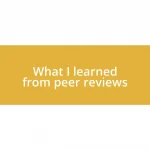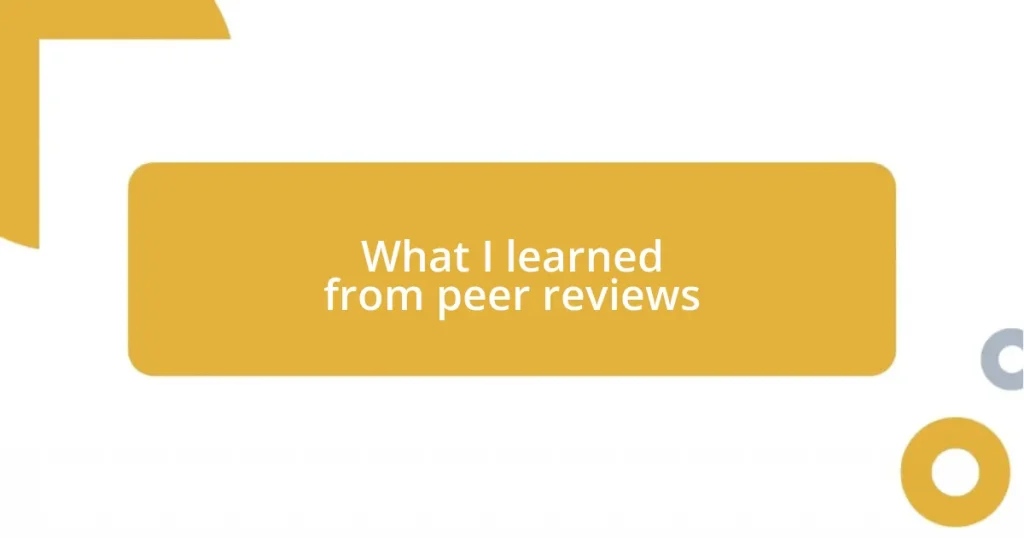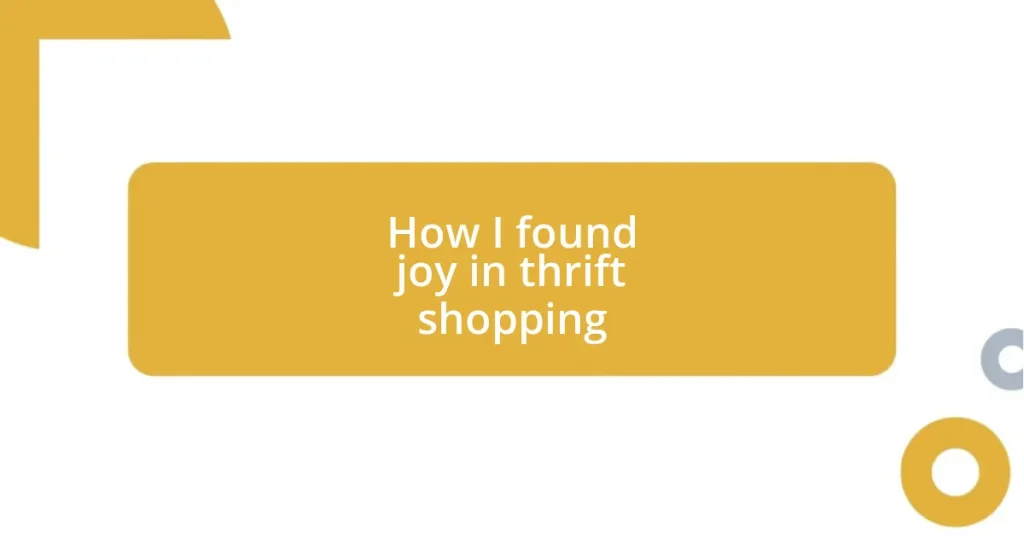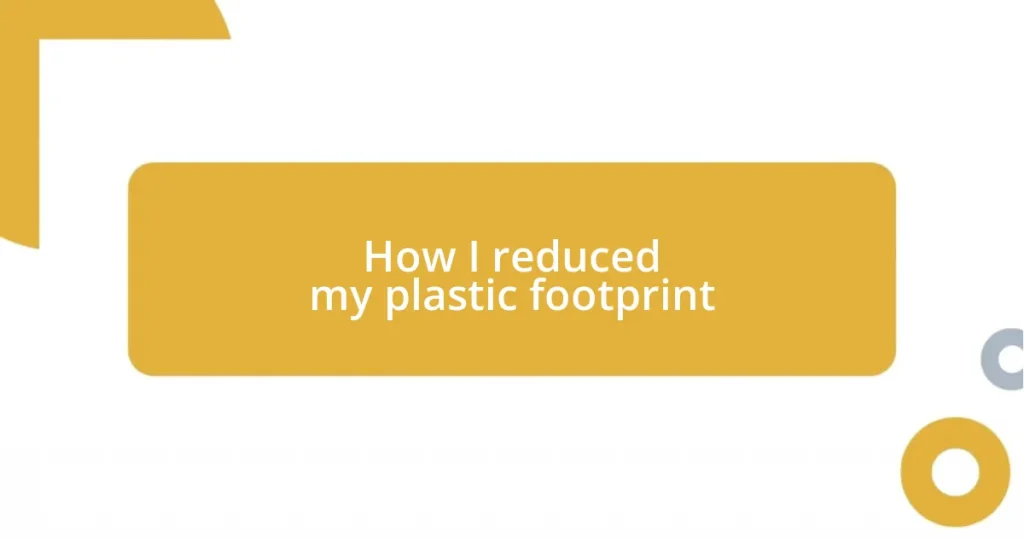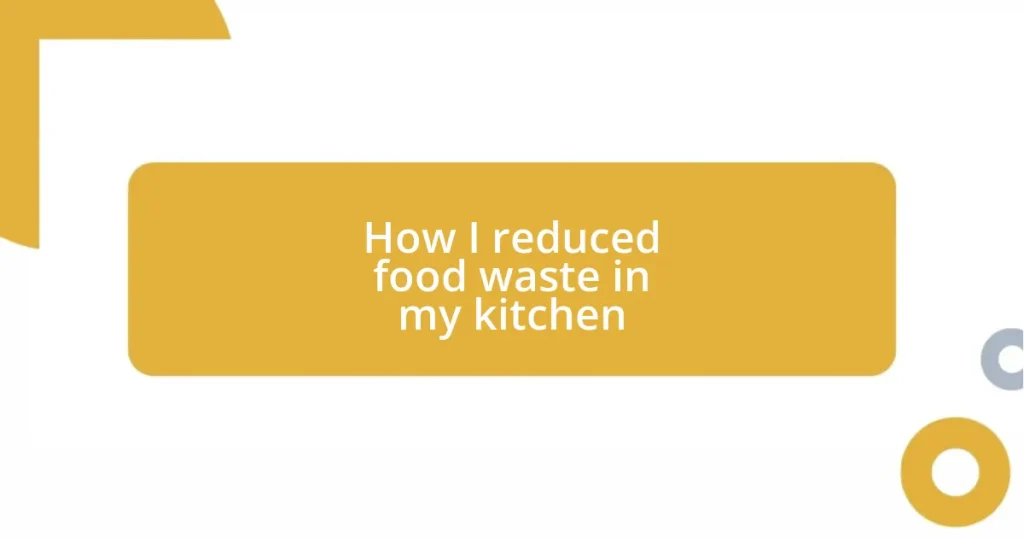Key takeaways:
- Peer reviews provide invaluable constructive feedback, highlighting blind spots and fostering self-discovery in writing.
- Effective feedback involves clarity, empathy, and balance to create a supportive environment that promotes growth.
- Engaging in peer reviews builds trust, collaboration, and deepens professional relationships over time.
- Implementing feedback strategically can lead to significant improvements in performance and confidence.
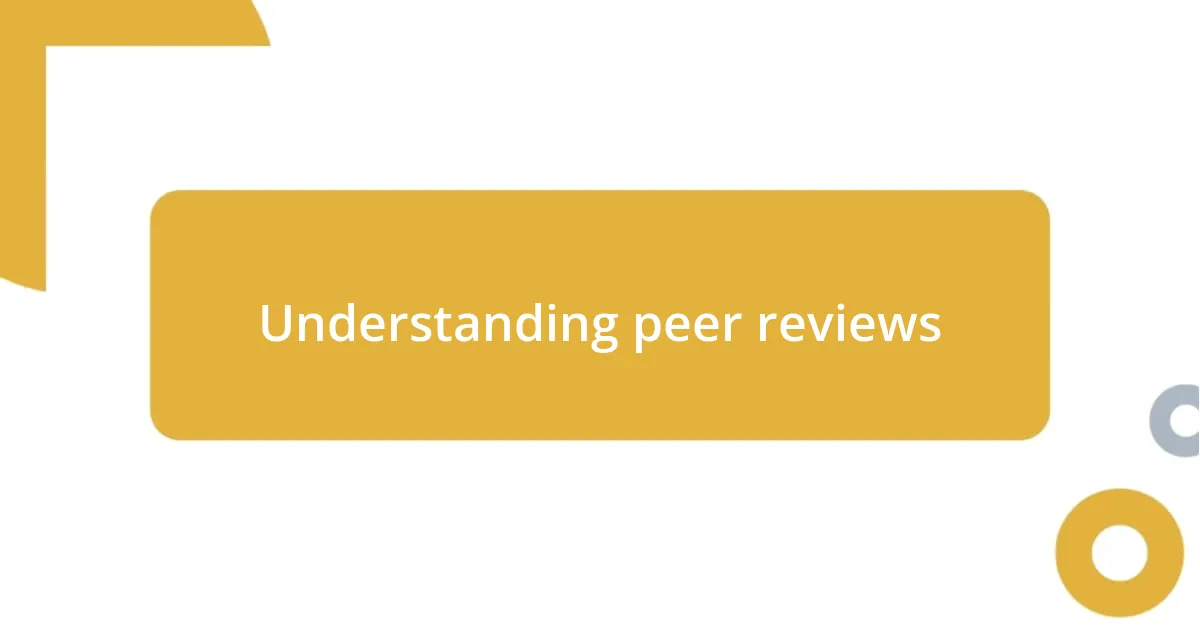
Understanding peer reviews
Peer reviews are a unique process where individuals evaluate each other’s work, offering constructive feedback. I remember my first experience with peer reviews during a university project; it felt nerve-wracking sharing my work, but it turned out to be invaluable. There’s something humbling about receiving insights from someone who has walked a similar path.
When I participated in peer reviews, I discovered that the feedback often highlighted things I overlooked. Has that ever happened to you? It gets you thinking about how our perspectives can blind us to our own mistakes. In one instance, my peer pointed out the lack of clarity in my writing; it was an eye-opener that made me realize how easily the message can get lost if we’re too close to our own work.
Moreover, the emotional aspect of peer reviews can really create a sense of community. Sharing vulnerabilities and seeing others be honest about their struggles fosters a supportive atmosphere. I’ve found that this camaraderie not only improves our work but also builds lasting relationships and trust among colleagues. Wouldn’t you agree that the growth we experience through constructive feedback is priceless?
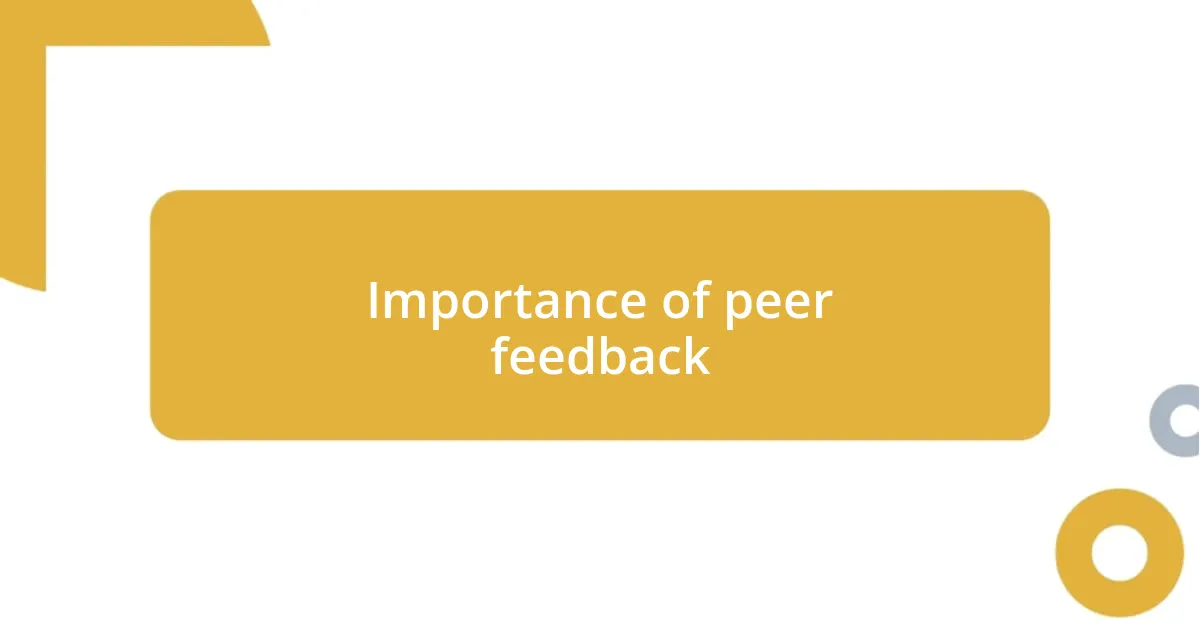
Importance of peer feedback
Peer feedback serves as a cornerstone for improvement. I’ve learned that receiving input from peers not only sharpens one’s skills but also boosts confidence. I remember a specific project where my classmate’s feedback led me to rethink my entire approach. That shift in perspective was like opening a new door—suddenly, I saw possibilities I hadn’t considered before.
Additionally, peer feedback fosters a collaborative learning environment. Engaging in this process helps us feel connected with others who are on a similar journey. One time, while reviewing a friend’s work, I noticed how my suggestions prompted conversations that uncovered deeper insights. This exchange didn’t just improve her piece; it enriched my own understanding as well, proving that the process is mutually beneficial.
Reflecting on my experiences, I realize that peer feedback is an essential tool for professional growth. It’s not just about fixing errors; it’s about building a culture of continuous improvement. When we share our work vulnerably and receive honest opinions, we embark on a journey of collective learning that enhances our skills and fosters relationships. Seeing others succeed because of what I shared has been incredibly rewarding.
| Benefits of Peer Feedback | Examples from Personal Experience |
|---|---|
| Improved Skills | Rethinking approach after a classmate’s feedback |
| Collaboration | Conversations from suggestions leading to deeper insights |
| Professional Growth | Witnessing others succeed through shared insights |
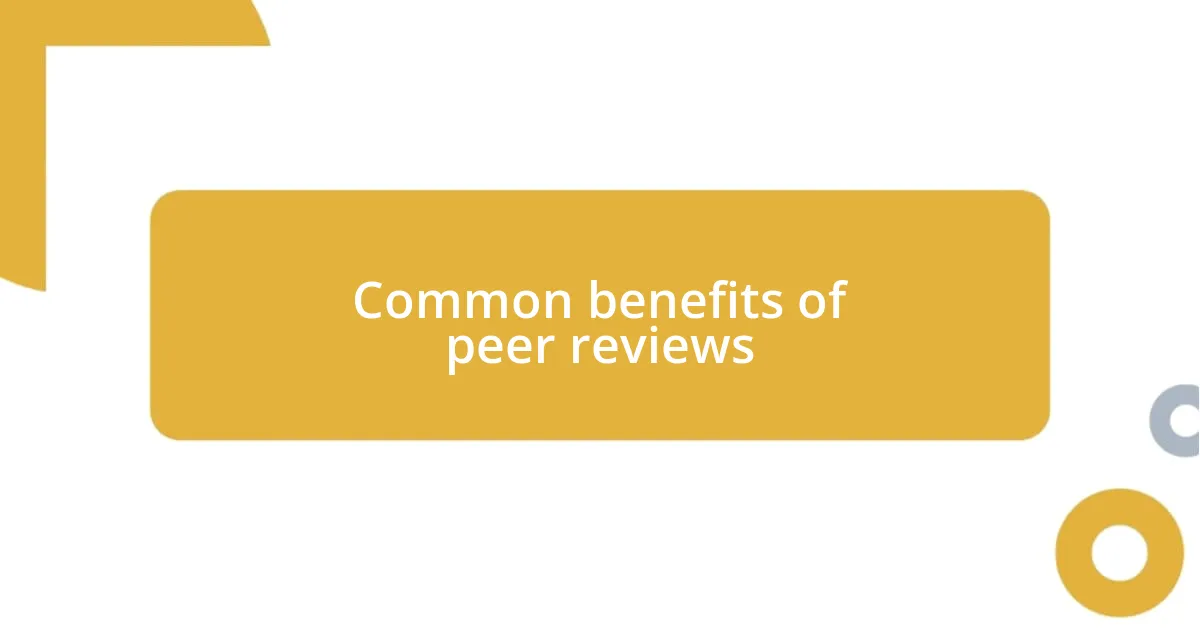
Common benefits of peer reviews
Engaging in peer reviews has offered me valuable advantages that can transform one’s work. For instance, I vividly recall how a colleague’s thoughtful critique refined my arguments, enriching the overall narrative of my project. It’s uplifting to see how constructive feedback can instill newfound confidence; I’ve often walked away from a review feeling empowered and ready to tackle challenges with a fresh perspective.
Here’s a quick summary of some common benefits of peer reviews that I’ve encountered:
- Enhanced Clarity: I once stumbled upon vague passages in my writing that a peer expertly pointed out, illuminating the importance of clear communication.
- Diverse Perspectives: Engaging with different viewpoints has frequently broadened my understanding of a topic; I remember feeling enlightened after discussing ideas with a peer from a different background.
- Strengthened Relationships: The shared experience of reviewing each other’s work has led to deepened connections, often resulting in friendships that extend beyond the academic sphere.
Each of these benefits has played a significant role in my development, underscoring how invaluable peer reviews truly are.
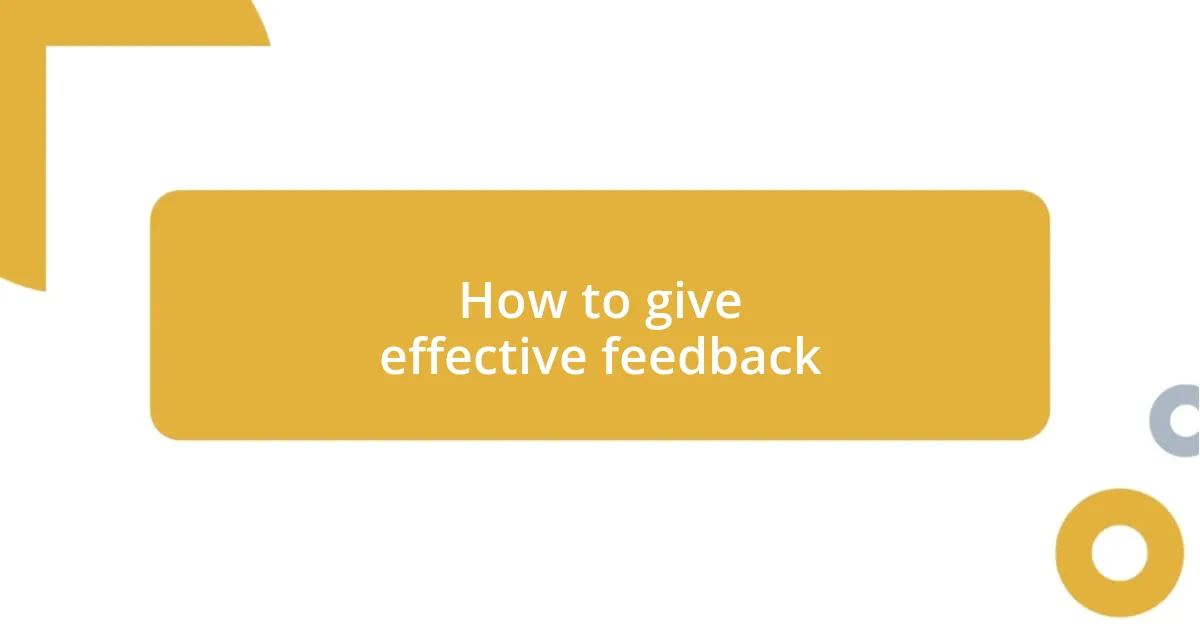
How to give effective feedback
When giving effective feedback, clarity is crucial. I remember a time when I pointed out a few errors in a friend’s presentation, but I didn’t specify how to fix them. The look of confusion on their face taught me that vague comments can lead to frustration instead of growth. So, I make it a point to be clear and constructive, always providing specific suggestions that can guide my peers toward improvement.
Empathy plays a significant role in how I deliver feedback, too. I try to approach the conversation with understanding and kindness, considering how I would feel receiving criticism. For instance, during a group project, I once had to give a colleague some tough love on her research findings. I made sure to express my admiration for her hard work first, then gently pointed out where things could improve. This approach transformed what could have been a tense moment into a productive dialogue, leaving us both feeling more encouraged.
Lastly, I believe in the power of balance in feedback. Too much criticism can daunt someone, while too much praise might not lead to growth. A memorable instance comes to mind when I reviewed a draft for someone who had done a fantastic job overall, but needed significant changes in one section. By offering praise for what was strong while addressing the weaker points, I created a space where my peer felt both validated and motivated to enhance their work. This balance truly fosters a supportive environment where feedback feels constructive rather than punitive.
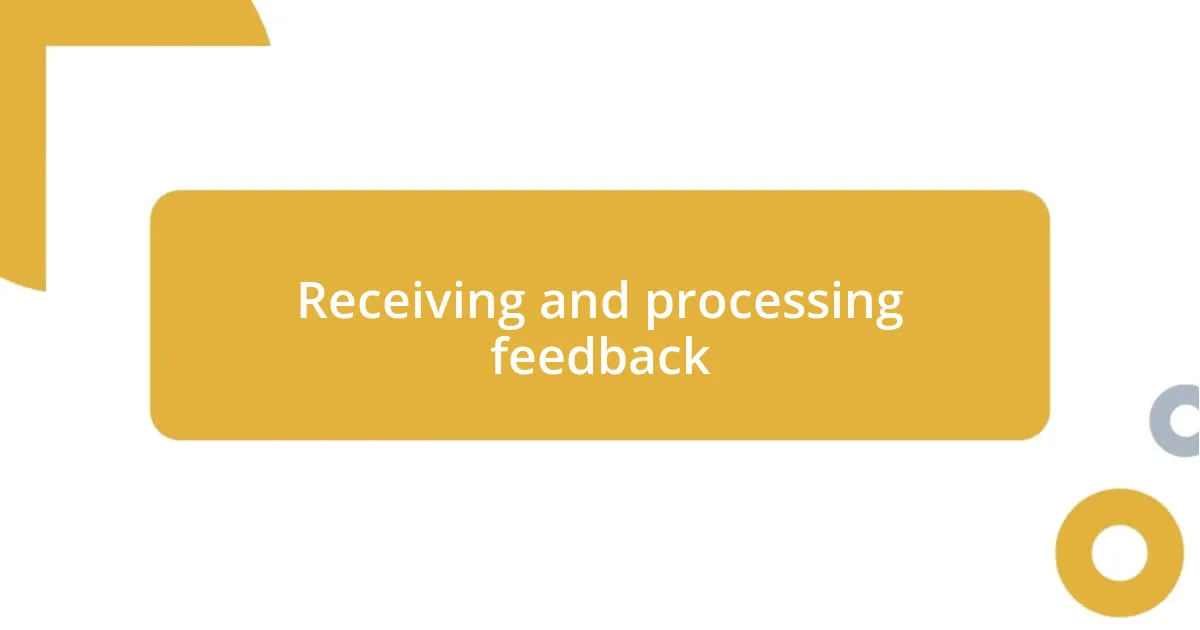
Receiving and processing feedback
Receiving feedback can be a mixed bag of emotions, can’t it? I remember one instance when I received a particularly harsh critique on my paper. Initially, I felt a sinking sensation in my stomach, but as I mulled over the comments, I began to see the underlying truth in them. Processing that feedback became a transformative moment for me; it shifted how I approached my writing and deepened my understanding of my audience.
What has always surprised me is how feedback can guide you through your blind spots. I once shared a draft with a colleague who wasn’t familiar with my topic. Their confusion over certain terms made me realize I was assuming too much knowledge from my readers. This insight not only refined my writing but also taught me to appreciate the value of another’s perspective. It was a revealing experience that underscored the need to ensure clarity for a wider audience.
Moreover, I’ve learned that integrating feedback isn’t just about making adjustments; it’s a journey of self-discovery. After receiving a review that highlighted my overuse of passive voice, I took that input to heart. I deliberately worked on my writing style, and it was exhilarating to see my voice strengthen over time. Has feedback ever pushed you to reinvent your approach? For me, it certainly has, proving that constructive criticism is a powerful tool for growth.
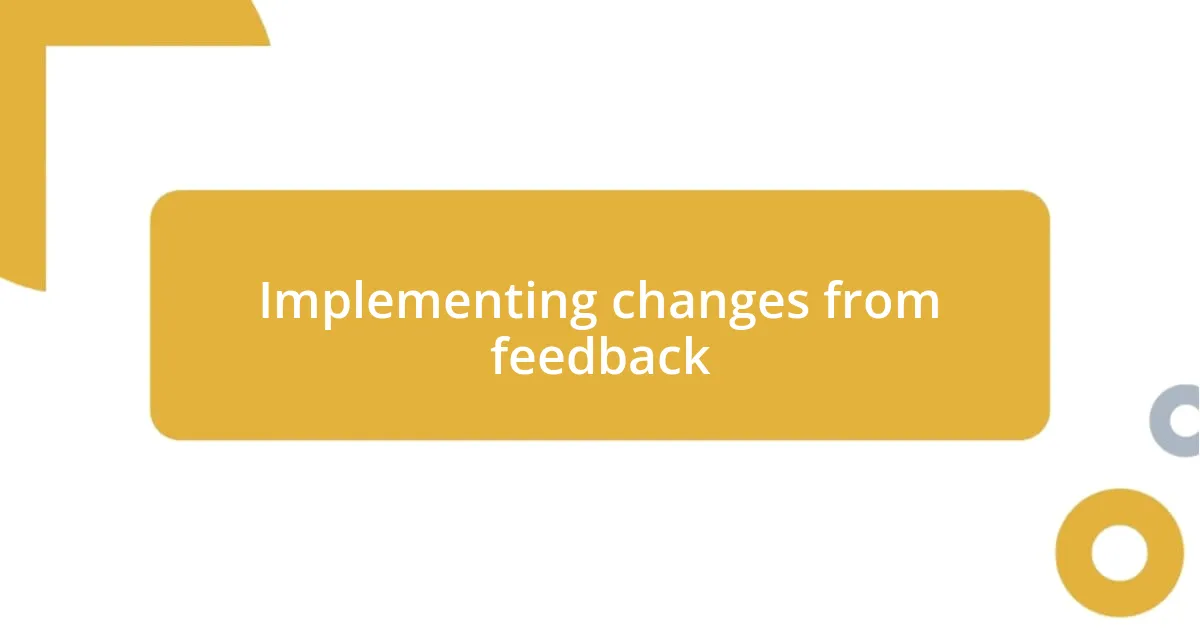
Implementing changes from feedback
When it comes to implementing changes from feedback, I’ve often found that prioritizing the most impactful suggestions can make a real difference. For instance, I once received feedback about my presentation style that encouraged me to focus more on engaging my audience. I decided to concentrate on that one piece of advice instead of trying to overhaul everything at once. The result was a presentation that felt more lively and connected, proving how targeted changes can elevate your overall performance.
I also remember a time when I overlooked some specific critiques from my peers, only to realize later how crucial those points were for improving my project. The feedback indicated that my conclusions weren’t clear. So, I took a step back and revised those sections, making them much more coherent and concise. Honestly, that experience taught me to approach feedback with an open heart and a readiness to adapt; accepting constructive criticism can lead to significant improvements.
Sometimes, it’s not just about implementing changes but also about the emotional journey that comes with it. I’ve felt the sting of criticism and yet found liberation in transforming those comments into actionable steps. It’s like embarking on a treasure hunt where the feedback acts as a map, guiding you toward greater confidence in your abilities. Have you ever had that moment when what feels like a setback turns out to be a leap forward? That realization truly shifts your perspective on how you embrace feedback.
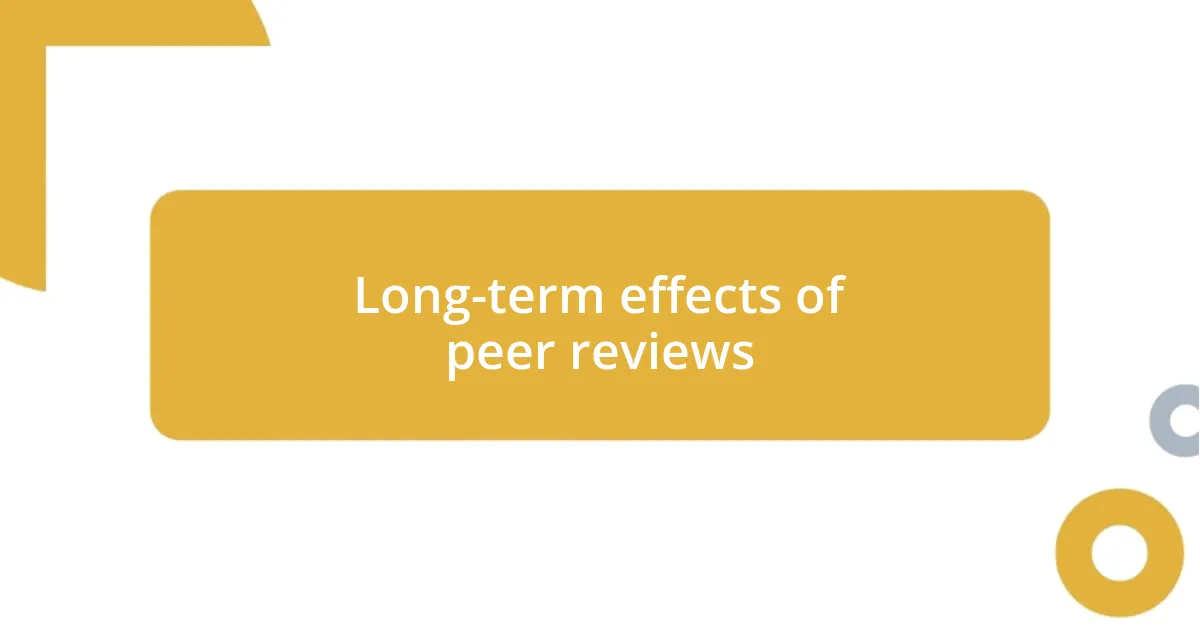
Long-term effects of peer reviews
When I reflect on the long-term effects of peer reviews, I can’t help but notice how they subtly reshape my professional relationships. I recall a time when a colleague and I critiqued each other’s work regularly. Over time, this practice not only sharpened our skills but also built a trust that made us more comfortable sharing bold ideas. Isn’t it fascinating how consistent feedback can foster deeper connections and collaboration?
Years later, I still carry the weight of those early critiques, which transformed my approach to both writing and teamwork. Each piece of feedback acted as a stepping stone, leading me to explore new angles and styles I would have otherwise shied away from. Have you ever considered how a single comment can ripple through time, influencing not just your work, but your growth as a professional? For me, those insights have been invaluable, guiding my evolution long after the critique was given.
Moreover, peer reviews have instilled a mindset of continuous improvement in me. Each critique is a reminder that, while I strive for excellence, there’s always room for growth. I remember feeling overwhelmed by the sheer volume of feedback I received, yet those very challenges pushed me toward resilience. It raised a crucial question: How do we turn discomfort into development? This transformative process has not only enhanced my work but has truly enriched my professional journey.







